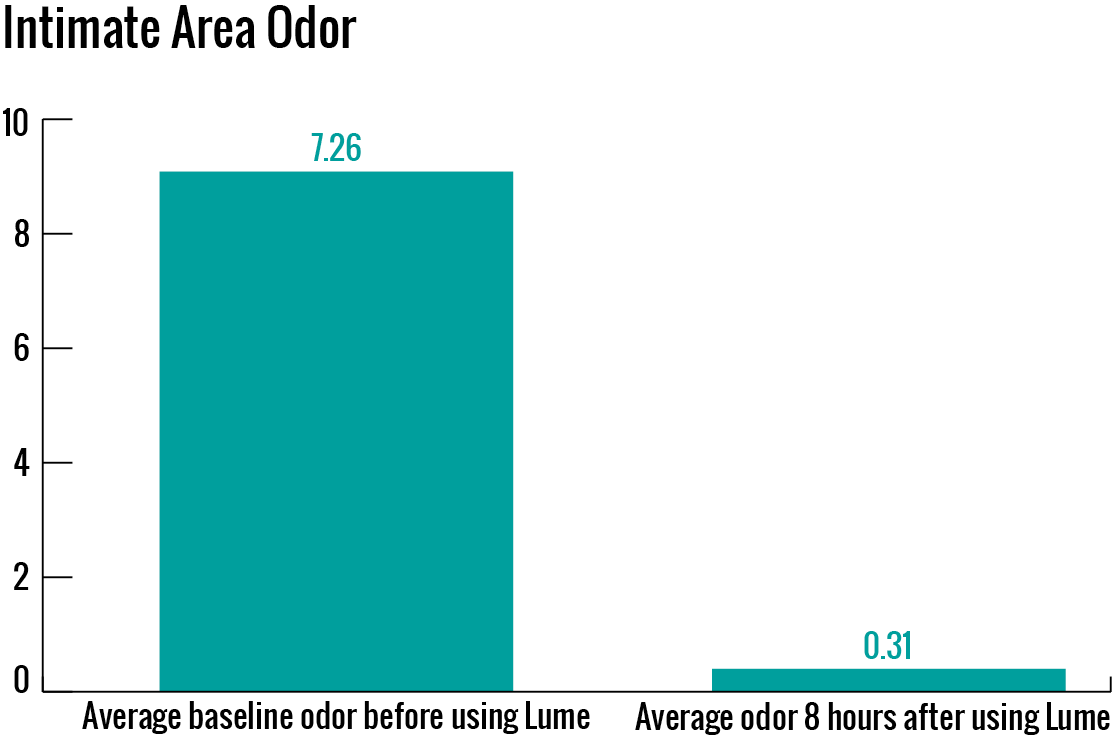
How to Get Rid of Fishy BV Odor without Antibiotics
by Callie Sleper
If you’re a woman who’s experiencing odor… down there… You’re certainly not alone. It happens to all of us at one time or another. Does that make it any less unpleasant? I’m afraid not.
When something smells a little off in the very area you most want it not to, it consumes your thoughts. Your gut reaction might be that it’s an infection, and worry can set in fast.
Making a doctor’s appointment and taking away time from your already busy week can be distressing, if not impossible!
And then there’s the fact that– even if you go to the doctor– a lot of evidence suggests they’ll send you home with an antibiotic you don’t even need. This could mean the problem continues because the actual issue isn’t getting solved!
Well, I’ve got some good news for you. There’s a higher likelihood the actual issue is coming from regular, day-to-day odor that’s external and not an internal, vaginal infection. Not only that, but the remedy for this odor is extremely easy and can be done in your own home. Read on to restore your peace of mind and confidence!
Let’s start by exploring what the most common vaginal infections look like. This may give you more of a clue as to whether what you’re going through is truly an infection or not.
BACTERIAL VAGINOSIS (OR BV)
BV occurs when there’s an upset in the balance of good and bad bacteria in the vagina. With BV, vaginal pH shifts to being higher and more basic. This means there’s too much “bad” bacteria thriving at that level and not enough “good” bacteria able to them at bay. With BV, you’ll typically see your normal discharge color change to green, grey, or dark yellow.
The most common symptom of BV is a change in vaginal discharge and a close second is “fishy odor.”
YEAST INFECTION
Yeast infections occur when there’s an overgrowth of yeast (AKA candida) normally found in the vagina. Discharge is typically thick and white–comparable to a “cottage cheese” texture.
You can experience itching and burning with both BV and yeast infections, but more so with a yeast infection. It’s tricky because not all that itches is yeast, and not all that smells is BV. If itching preoccupies your thoughts the entire day, there’s a good chance it’s yeast causing it.
MOST OFTEN, IT’S DAY-TO-DAY ODOR CAUSING ANY SMELL DOWN THERE
FACT: Internal and external odor of your vagina smell THE. EXACT. SAME.
In other words, the same “fishy odor” that occurs inside the vagina with BV is highly common outside of the vagina from day to day activities. This is because the external vulvar area surrounding the vagina is naturally in contact with fluids regularly (i.e., sweat, semen, blood, urine, cervical discharge). Bacteria found near the vulva combine with fluids to create the same odor-causing reaction on the vulvar area as well as inside the vagina itself.
In fact, odor happens in this same way all over the body (Bacteria + bodily fluids = odor). We have the odor code cracked!
However, if odor truly is inside the vagina, this is not normal and indicates infection and BV.
Although the feminine hygiene industry has been leading women to believe their vaginas smell truly unruly, it is nothing more than a common myth. The vagina is a magically self-cleaning organ and may as well be featured as the next big superhero out in a theater near you. Read more on why the vagina is most often not to blame.
BV DIAGNOSIS IS FAR FROM AN EXACT SCIENCE...
This odor confusion explains why diagnosing BV has traditionally missed the mark. Doctors frequently go by brief, inadequate sniff tests, and lab tests for BV are all too often unreliable by their nature. In fact, BV gets misdiagnosed well over half the time (61%), and yeast infections even more so (73%).
Doctors have over diagnosed vaginal infections and prescribed unnecessary antibiotics at such high rates, and we suspect it is because their job is to serve patients. Until now, there hasn’t been a good remedy for this external odor. So, it’s likely many figure it’s better to at least send patients experiencing such discomfort home with at least something to alleviate their struggle.
This means you may as well flip a coin to determine whether or not your doctor will give you an accurate diagnosis. The result is that antibiotics are prescribed far more often for BV than they need to be.
IT’S A GOOD IDEA TO ONLY TAKE ANTIBIOTICS WHEN NEEDED
The overdiagnosis rates of BV indicate that antibiotics aren’t always needed when you have concerns about odor. However, if you truly have an infection which doesn’t go away on its own, antibiotics are the best thing that will help. When they’re required, the benefits of antibiotics definitely outweigh the risks. But, while antibiotics may seem fairly harmless, there are important side effects to consider, especially if it turns out you aren’t infected after all.
Though antibiotics are one of the greatest discoveries of human history, too much of a good thing has the potential to alter your body’s natural bacterial landscape and cause negative effects, especially if used too often over time. Per Medical News Today, some harmful effects include:
- Digestive Issues. Besides nausea, bloating, pain, diarrhea, and more, antibiotics can significantly alter gut bacteria. In most cases, the good bacteria regenerates, but this gets more difficult after multiple exposures and can lead to other chronic health problems.
- Fungal Infections of the vagina, mouth, and throat. ‘Nuff said.
- Drug Interactions. There are many different drugs, including birth control, supplements, and certain antidepressants, which affect antibiotic efficiency. To avoid interactions, ask your doctor or read the information on antibiotic pamphlets.
- More sun-sensitive skin. Some people are more prone to sunburns while on certain antibiotics.
- Dental and bone stains. Antibiotics like tetracycline can stain teeth, which don’t grow or alter as adults, and bones, which constantly change and are at least hidden. Just raise your hand if you’d like to prep for a date to the dentist…
More serious, but rare issues, include anaphylaxis, a severe kind of colitis, and kidney failure. Our intent isn’t to scare you but arm you with awareness that you should keep an eye on your antibiotic use over time, and avoid taking them unless they’re really necessary.
These reasons, among the ones listed in the beginning of this piece, is why many ladies would rather resort to getting rid of what seems to be BV on their own before visiting their doctor.
SO CAN YOU GET RID OF BV WITHOUT ANTIBIOTICS?
The painful itching and burning symptoms of BV and yeast infections can be alleviated with a sitz bath or cold or warm compresses.
To solve an infection as the cause of internal (or vaginal) odor, antibiotics are the only thing that can bring you back to full recovery.
But if you’re experiencing external, day to day odor that mimics BV odor, it can be effectively alleviated with an external remedy that’s easy to use at home.
That’s exactly why Lume was created.
Finally. At long last, there’s a remedy for external odor doctors and women have mistaken for so long with BV. And it’s such an easy one, too!
Lume Deodorant For Pits, Privates & Beyond is a Whole Body deodorant developed by a female OBGYN that’s safe and effective for anywhere externally on the body. It’s been clinically proven to keep odor at bay for 72 hours because it is pH optimized to stop smell before it even happens.
Try using Lume externally on your lady parts and, if you still notice odor after a few days, you’ll know the odor likely has an internal cause that requires a lab test and doctor’s diagnosis. If you have any other abnormal symptoms beyond odor like the ones mentioned here, they also indicate it’s time to see your doc.
It’s good to know that BV is not serious, the vast majority of the time, so most women who want to try Lume at home for a few days can safely do so. Lume will also not cover up symptoms of internal infection, so you don't need to worry about hiding a condition that does need to be treated with antibiotics.
Our clinical testing shows just how effective Lume is for privates:
Lume solves cases of odor masquerading as BV a surprisingly high amount of the time.
If doctors and women had access to an external solution like Lume all along, overdiagnosis of BV would not have been such a problem. Can I get an Amen?!
Luckily, now there’s Lume to keep you feeling every bit like the goddess you are!
***Note: Lume provides general information geared to inform and empower our readers. This is not information intended to diagnose or treat conditions of the vulva or vagina. It is recommended if you may be pregnant that you visit your doctor as soon as possible if you have symptoms of infection.

Categories
Recent Articles
- Meet Our New Clinical Strength Antiperspirant Spray
2026-02-05T21:00:00.000Z
- The Art of Scent Layering With Lume
2025-09-24T20:51:28.831Z
- Your Pits Deserve Better: Why Lume is The Best Deodorant For Underarms
2025-08-08T14:01:16.861Z
- Bacteria On Our Skin: Friend Or Foe?
2025-07-17T19:53:50.363Z
- Why Lume's Premium Ingredients Deliver Quality & Real Value
2025-06-20T15:57:17.551Z









